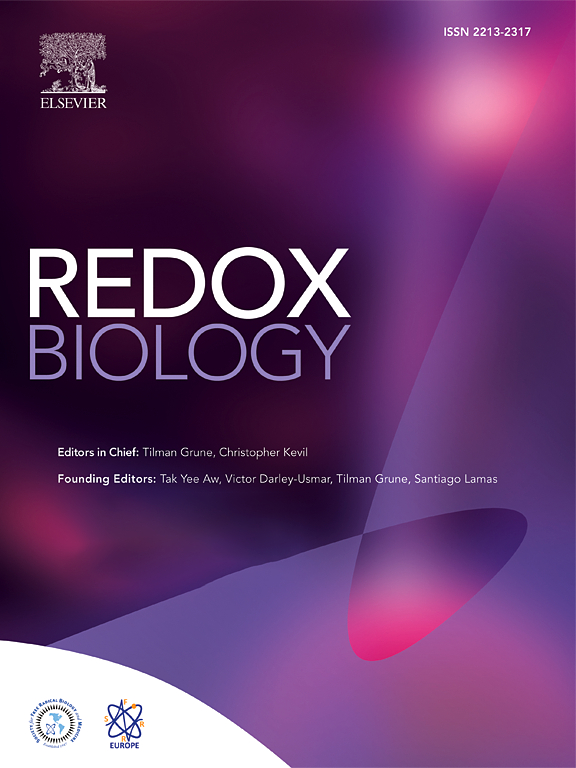先天免疫记忆中的氧化还原信号:动物/人类和植物的相似机制
IF 10.7
1区 生物学
Q1 BIOCHEMISTRY & MOLECULAR BIOLOGY
引用次数: 0
摘要
植物和动物/人类已经进化出复杂的先天免疫系统来应对微生物的攻击。先天免疫意味着存在膜内和细胞内的受体来识别损伤或入侵病原体释放的化合物。受体分子检测后启动细胞内防御信号,导致细胞死亡和/或产生防御分子。有趣的是,防御反应还包括记忆机制,这使得生物体能够更好地应对未来的微生物攻击。氧化还原机制在防御信号传导中发挥重要作用。在这篇综述文章中,我们比较了动物/人类和植物的先天免疫记忆,并描述了可逆性一氧化氮和活性氧依赖的蛋白质修饰如何激活防御信号蛋白和转录因子,并调节染色质修饰酶的活性,从而建立先天免疫记忆。我们希望鼓励进一步表征先天免疫记忆的分子氧化还原机制的努力,这可能会促进新的免疫疗法的发展。本文章由计算机程序翻译,如有差异,请以英文原文为准。
Redox-signaling in innate immune memory: Similar mechanisms in animals/humans and plants
Plants and animals/humans have evolved sophisticated innate immune systems to cope with microbial attack. Innate immunity implies the presence of membrane-located and intracellular receptors to recognize compounds released by damage or by invading pathogens. After detection the receptor molecules initiate intracellular defense signaling, resulting in cell death and/or production of defense molecules. Interestingly, the defense response includes also memory mechanisms, which allow the organisms to better cope with future microbial attacks. Redox mechanisms play an important role in defense signaling. In this review article, we compare the innate immune memory of animals/humans and plants and describe how reversible nitric oxide- and reactive oxygen species-dependent protein modifications enable the activation of defense signaling proteins and transcription factors and regulate the activity of chromatin modifying enzymes to establish innate immune memory. We hope to encourage efforts to characterize further molecular redox mechanisms of the innate immune memory, which might enable the development of new immunotherapies.
求助全文
通过发布文献求助,成功后即可免费获取论文全文。
去求助
来源期刊

Redox Biology
BIOCHEMISTRY & MOLECULAR BIOLOGY-
CiteScore
19.90
自引率
3.50%
发文量
318
审稿时长
25 days
期刊介绍:
Redox Biology is the official journal of the Society for Redox Biology and Medicine and the Society for Free Radical Research-Europe. It is also affiliated with the International Society for Free Radical Research (SFRRI). This journal serves as a platform for publishing pioneering research, innovative methods, and comprehensive review articles in the field of redox biology, encompassing both health and disease.
Redox Biology welcomes various forms of contributions, including research articles (short or full communications), methods, mini-reviews, and commentaries. Through its diverse range of published content, Redox Biology aims to foster advancements and insights in the understanding of redox biology and its implications.
 求助内容:
求助内容: 应助结果提醒方式:
应助结果提醒方式:


